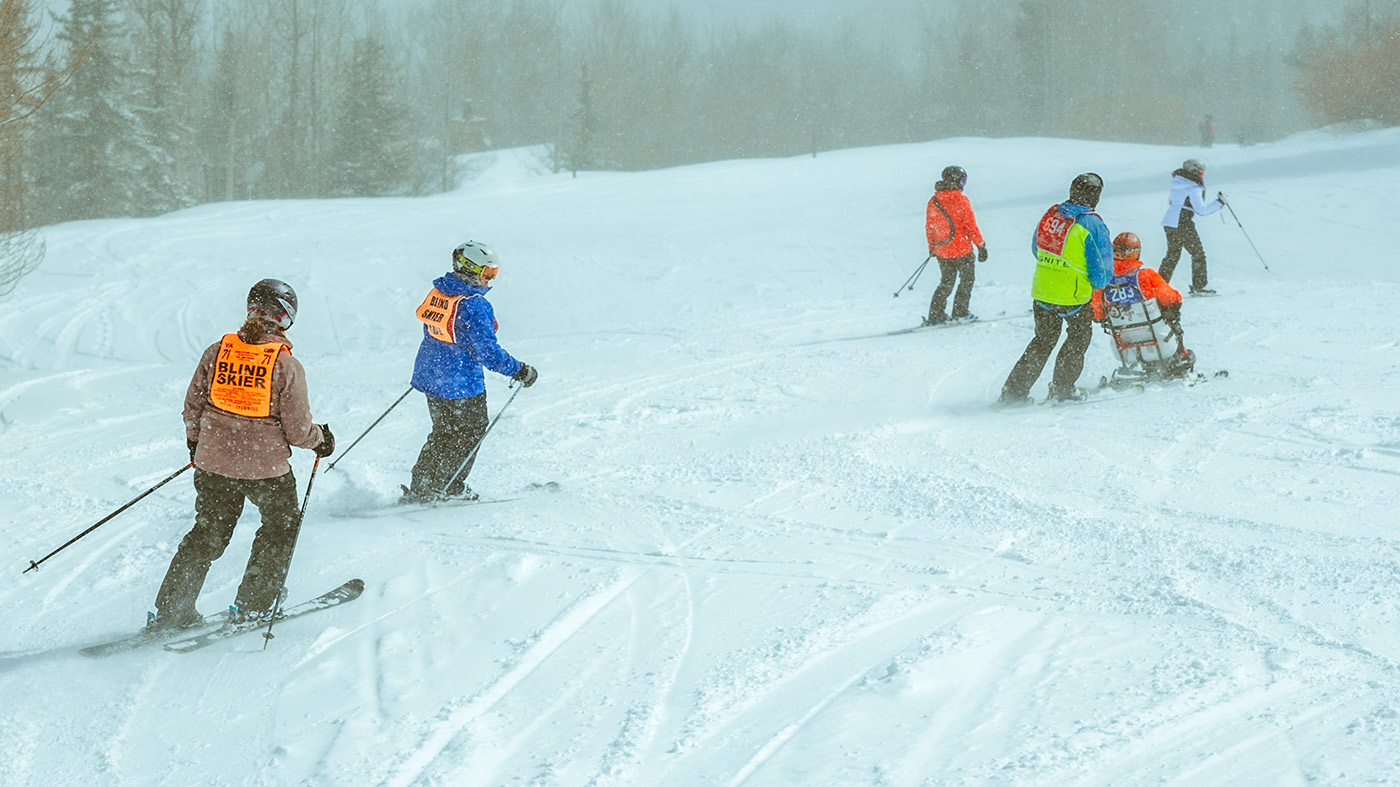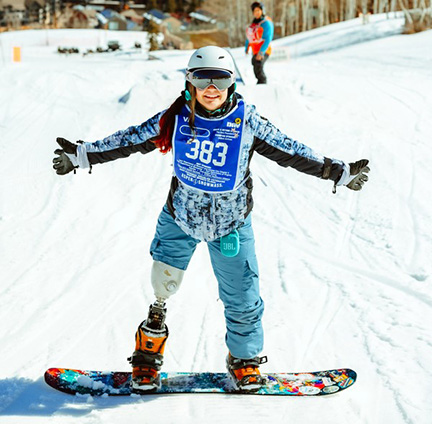“Anger is not a perfect circle of stages you work through. It is a big ball of craziness,” said Army Veteran and amputee Amanda Seward of her journey to healing and acceptance.
Seward enlisted in the Army in 2011, but after a decade of service and two deployments to Kuwait, it was a typical day on the job as a Guard Reserve recruiter in January 2019 that left her disabled.
Only a month back from her second deployment, she pulled her car over to the side of the road and, after exiting, was struck by a vehicle from behind.
Several months later, after several surgeries to try and salvage her limb and a struggle with infections, she and her providers at Walter Reed Medical Center made the difficult decision to amputate her leg in April 2019.
What followed was a seemingly endless number of therapy, procedures and prosthetic appointments that led to her being medically retired in 2021.
How people saw her had changed
“I had so much emotion, but I had to learn and grow, adapt and become better,” Seward said. “I have this injury, but it is not what defines me. People try to make it the first thing they relate to me.”
She added that people are thrown by the thought of a female amputee and wishes there was better education about amputees and disabilities—starting with educating school children. Most people don’t think about disabilities until it affects them, so they don’t have the education to realize that a disability doesn’t limit the ability to live a full life.
Wanting to continue to live a full life is why Seward turned to adaptative sports. She recently attended the National Disabled Veterans Winter Sports Clinic in Snowmass, Colo. for the second year.
For more than three decades, the Winter Sports Clinic has helped many of our nation’s most profoundly disabled Veterans overcome obstacles and challenge their perceived limitations.
The clinic, made possible through a longstanding partnership between VA and DAV (Disabled American Veterans), allows Veterans to participate in Nordic and downhill skiing, sled hockey, rock wall climbing, scuba diving and a wide variety of other sports and educational workshops. It is the largest rehabilitative event of its kind in the world, and each year hosts nearly 400 Veterans.
The clinic helps Seward not only live a full life but look forward to more accomplishments as she works toward new goals, qualifying for the 2026 Paralympics in snowboarding, and creating a non-profit organization called Taking Art into Battle. The latter would allow members of the military and Veterans to proactively participate in art and creative therapy. Through this non-profit, Seward hopes to be able to appear before Congress to advocate for creative arts positions in the military.
“We need to tell each other it is OK to ask for help.”
At the Winter Clinic, her focus on the slopes was dedicated to honing her snowboarding skills and learning to ride “goofy.”
While the daily struggles of mental and physical pain can still overwhelm Seward at times, she can now see more of what the world has to offer. Coming to the Winter Sports Clinic ahs allowed her to get a hug or have deeper conversations with those who truly understand where she has been.
“We need to tell each other that it is OK to ask for help. You are not any less. Find your team because they will support you and make you strong,” she said, before taking a breath and adding: “Find your team.”
Topics in this story
Link Disclaimer
This page includes links to other websites outside our control and jurisdiction. VA is not responsible for the privacy practices or the content of non-VA Web sites. We encourage you to review the privacy policy or terms and conditions of those sites to fully understand what information is collected and how it is used.
More Stories
Pacific Islands VA has opened a new urgent care clinic inside the Daniel K. Akaka VA Clinic.
From one battle to the next, including four types of cancers, Eliot Winokur’s resilience remains unshaken.
As severe weather threatened Mississippi, local news warned of a dangerous outbreak of tornadoes. A VA nurse stepped up.







Good Luck!
Where is the support for less visible Disabled American Veterans? The VA lacks resources and activities for those living with Traumatic Brain Injuries (TBI) and PTSD. Where are the National Veterans TBI Games? Where are the Winter Sports Games specifically for Veterans with less visible disabilities? Why does the VA prioritize Veterans with highly visible combat injuries while neglecting and sidelining those Veterans with invisible disbilities of combat that need assistance?
god bless you!